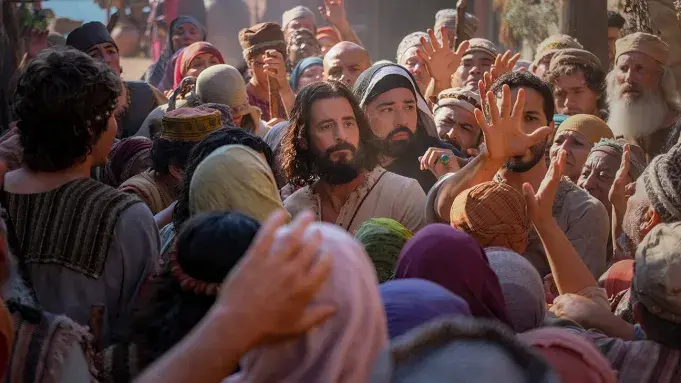Exploring Love through the Eyes of Sartre and Rousseau: Guide for Filipino Youth on Valentine's Day
- josnardionzon5
- Feb 13, 2023
- 7 min read
Updated: Sep 18, 2023

Love is a complex and intriguing emotion that has been explored by philosophers, poets, and artists for centuries. Two prominent philosophers who have delved into the topic are Jean-Paul Sartre and Jean-Jacques Rousseau. In this blog, we will examine their views on love, compare and contrast their ideas, and offer insights into how they may be relevant to Filipino youth on Valentine's Day.
What is love? Before delving into the views of Sartre and Rousseau, it's important to define what is meant by love. Love can be described as a deep affection or strong feeling of attachment towards someone. It is an emotion that encompasses feelings of caring, kindness, and devotion. Love can manifest in many different forms, such as romantic love, familial love, or love for one's country.
Jean-Paul Sartre and Jean-Jacques Rousseau were both prominent French philosophers who lived in different centuries. Sartre was a 20th-century existentialist philosopher, who believed in the importance of individualism and free will. His views on love reflect this emphasis on the individual and their ability to make choices and exercise agency. On the other hand, Rousseau was an 18th-century philosopher who lived during the Enlightenment. He believed in the importance of tradition and natural emotions, and his views on love reflect this focus on the collective and the role of society in shaping the human experience.
Jean-Paul Sartre on Love
Jean-Paul Sartre's view on love can be characterized as an individualistic approach. He believed that love was an experience that was unique to each individual and that was driven by their own decisions and actions. According to Sartre, love was not something that was determined by external factors such as social norms or societal expectations. Instead, he saw love as a choice that was made by the individual, based on their own desires, beliefs, and values.
Sartre emphasized the importance of individual decisions and agency in love. He believed that individuals should take control of their own emotions and feelings and that they were responsible for the choices they made in their relationships. Sartre saw love as a conscious choice that was made by the individual, and not a feeling that was beyond their control.
In this sense, Sartre's view of love can be seen as a rejection of the traditional view that love was a passive experience that was determined by fate or destiny. Instead, he believed that individuals had the power to shape their own love experiences and that they should take responsibility for the decisions they made in their relationships.
Sartre's individualistic approach to love is rooted in his belief in existentialism. He believed that individuals were responsible for their own lives and that they had the freedom to make choices that would determine their own experiences and outcomes. This same belief in individualism and free will was applied to his view on love, where he believed that individuals were responsible for their own love experiences and that they had the power to make decisions that would shape their relationships.
An example of a relationship based on Sartrean love could be one where both individuals exercise their freedom and make conscious choices in their relationship. For instance, they might have a mutual understanding that they are free to pursue their own interests and desires, but also choose to be together because of their love and affection for each other. In this type of relationship, both individuals are aware of their own freedom and take responsibility for their decisions and actions.
However, there is also the danger of bad faith in Sartrean love. Bad faith is a concept in Sartre's philosophy that refers to the act of denying or obscuring one's own freedom and agency. In the context of love, bad faith can occur when individuals become passive and surrender their freedom to external factors, such as societal expectations or cultural norms. For example, if one person in the relationship begins to feel that they are only in the relationship because they feel they "should be" or because they believe that is what is expected of them, they are acting in bad faith. This can lead to a sense of unhappiness and a lack of authenticity in the relationship.
Therefore, it's important for individuals in a Sartrean love relationship to be aware of their own freedom and to make conscious, deliberate choices in their relationship, rather than surrendering their freedom to external factors. By embracing their own agency and making choices that align with their desires and values, individuals in a Sartrean love relationship can avoid the danger of bad faith and maintain a healthy and authentic relationship.
Jean-Jacques Rousseau on Love
Jean-Jacques Rousseau's view on love can be characterized as a more traditional, collective view. Unlike Sartre, who saw love as a choice made by the individual, Rousseau believed that love was a natural emotion that arose from social norms and the influence of others. He saw love as something that was beyond the control of the individual, and that was shaped by the social, cultural, and historical context in which it was experienced.
Rousseau emphasized the importance of tradition and the collective view of love. He believed that love was not just an individual experience, but was also shaped by the collective beliefs, values, and norms of society. He saw love as a social bond that connected individuals and helped to form the foundation of society.
In this sense, Rousseau's view on love can be seen as a rejection of the individualistic approach to love that was espoused by Sartre. He believed that love was not just a personal experience, but that it was also shaped by the social, cultural, and historical context in which it was experienced. This collective view of love was rooted in Rousseau's belief in the importance of social order and the role that love played in maintaining this order.
Rousseau's view on love also reflected his belief in the importance of emotions and feelings in human life. He believed that emotions such as love were essential for human happiness and well-being and that they were a natural part of the human experience. He saw love as a feeling that was beyond the control of the individual, but that was nonetheless essential for their happiness and well-being.
One example of a love relationship in Rousseau's view could be a traditional, arranged marriage in which love grows over time. In this scenario, the individuals involved in the relationship may start off as strangers and may be brought together by the expectations and norms of their society. However, as they get to know each other and spend time together, they may begin to develop feelings of love and affection.
According to Rousseau, this type of love relationship is not without its dangers. For example, the influence of society and its norms may put pressure on the individuals involved to conform to certain expectations and roles in the relationship. This may lead to a loss of individuality and freedom, as well as a disconnection from one's true feelings and desires.
Additionally, Rousseau believed that love can be dangerous because it can lead to a loss of rational judgment and a surrendering of one's will to another person. This can result in a loss of autonomy and a giving up of one's own desires and goals. The power dynamics in the relationship may become imbalanced, leading to a loss of equality and mutual respect.
These dangers highlight the importance of striking a balance between the emotional and rational aspects of love, and the need to be aware of the potential pitfalls and challenges in any love relationship. By being mindful of these dangers, individuals can strive to maintain their individuality, autonomy, and sense of self in their relationships, while also allowing love to flourish and grow.
Comparison of Views
The views of Jean-Paul Sartre and Jean-Jacques Rousseau on love are quite different, but they do share some similarities. One commonality between their views is the recognition of the importance of individual choice and decision in love. Both Sartre and Rousseau recognized that individuals had a role to play in shaping their love experiences and that their decisions and choices had a significant impact on their relationships.
Another similarity between their views is that both saw love as an emotional experience that was deeply tied to one's identity and sense of self. Both philosophers recognized that love had the power to shape and influence the individual and that it was a central part of human experience and well-being.
Despite these similarities, there are also several key differences between Sartre's and Rousseau's views on love. One of the biggest differences is their emphasis on the role of the individual in love. Sartre emphasized the importance of individual agency and decision-making in love, while Rousseau saw love as a natural emotion that was beyond the control of the individual. This difference reflects the larger philosophical differences between the two thinkers, with Sartre's existentialist philosophy emphasizing individual freedom and choice, and Rousseau's more traditional, collective approach emphasizing the role of society and tradition in shaping human experience.
Another key difference between their views is their understanding of love as a choice or a feeling. Sartre saw love as a choice that was made by the individual, while Rousseau saw it as a feeling that arose from social norms and the influence of others. This difference reflects their differing views on the nature of human experience, with Sartre seeing love as a deliberate choice, and Rousseau seeing it as a natural part of human experience that was shaped by external factors.
The views of Paul Sartre and Jean-Jacques Rousseau have had a significant impact on our understanding of love. Sartre's emphasis on individual choice and agency has inspired many to see love as a personal decision, while Rousseau's focus on love as a natural emotion has emphasized the importance of tradition and the collective view of love.
Lessons for Filipino Youth on Love from Sartre and Rousseau
Filipino youth can learn several important lessons from the views of Jean-Paul Sartre and Jean-Jacques Rousseau on love this Valentine's Day. From Sartre, they can learn the importance of taking responsibility for their own emotions and feelings, and the value of making conscious, deliberate choices in love. Sartre's emphasis on individual agency can inspire young Filipinos to be intentional and thoughtful in their relationships and to take charge of their own emotional experiences.
From Rousseau, Filipino youth can learn the importance of understanding the role that social norms and the influence of others play in shaping our emotions and relationships. They can see the value of considering the collective view, and of being attuned to the emotional experiences of those around them. Rousseau's emphasis on love as a natural emotion can encourage young Filipinos to be more authentic and genuine in their relationships and to embrace their feelings and emotions with openness and vulnerability.
In conclusion, both Sartre and Rousseau offer valuable insights and lessons for Filipino youth on love this Valentine's Day. Whether emphasizing individual agency or the role of tradition and the collective, their views can inspire young Filipinos to be more intentional, thoughtful, and authentic in their relationships, and to embrace love as an important part of their personal and social lives.
On this Valentine's Day, as we reflect on the meaning of love, it is important to consider the ideas of both Sartre and Rousseau. Whether we see love as an individualistic experience driven by choice, or a natural emotion that arises from tradition, both perspectives offer valuable insights into this complex and fascinating emotion.



Comentários